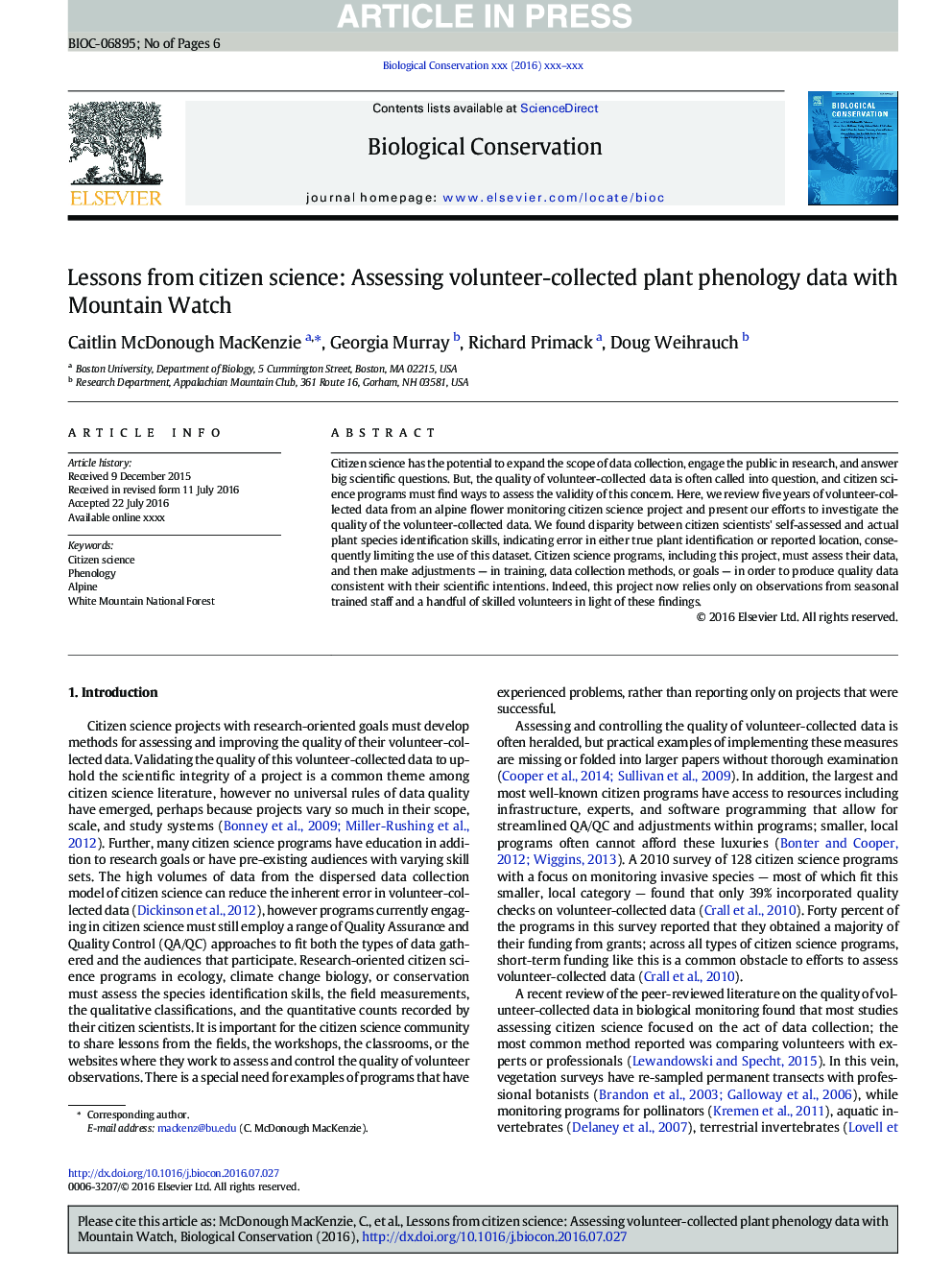| Article ID | Journal | Published Year | Pages | File Type |
|---|---|---|---|---|
| 5743184 | Biological Conservation | 2017 | 6 Pages |
Abstract
Citizen science has the potential to expand the scope of data collection, engage the public in research, and answer big scientific questions. But, the quality of volunteer-collected data is often called into question, and citizen science programs must find ways to assess the validity of this concern. Here, we review five years of volunteer-collected data from an alpine flower monitoring citizen science project and present our efforts to investigate the quality of the volunteer-collected data. We found disparity between citizen scientists' self-assessed and actual plant species identification skills, indicating error in either true plant identification or reported location, consequently limiting the use of this dataset. Citizen science programs, including this project, must assess their data, and then make adjustments - in training, data collection methods, or goals - in order to produce quality data consistent with their scientific intentions. Indeed, this project now relies only on observations from seasonal trained staff and a handful of skilled volunteers in light of these findings.
Keywords
Related Topics
Life Sciences
Agricultural and Biological Sciences
Ecology, Evolution, Behavior and Systematics
Authors
Caitlin McDonough MacKenzie, Georgia Murray, Richard Primack, Doug Weihrauch,
